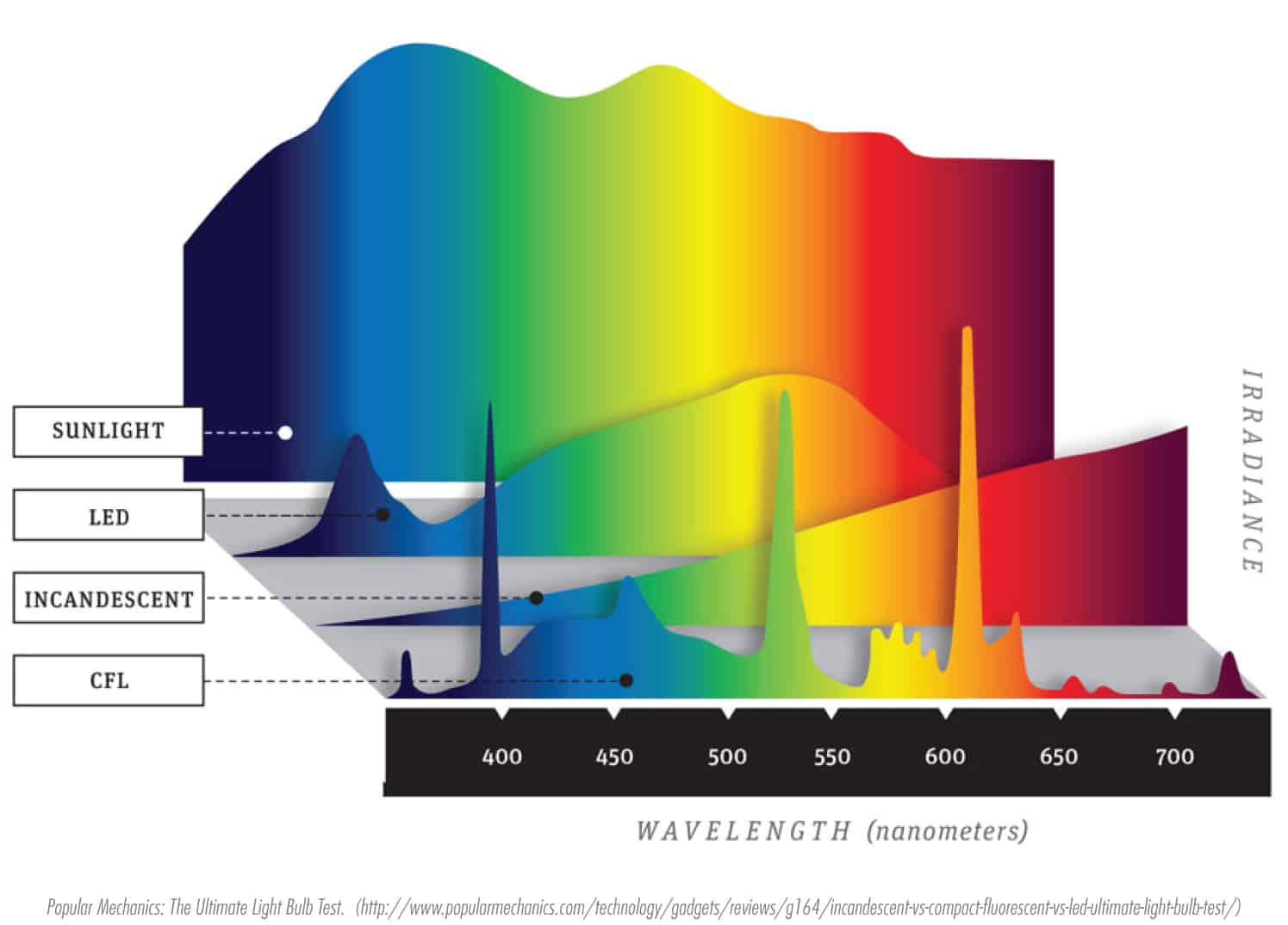Lighting 101: Shaping Minds with LED Lighting in Classrooms
Since lighting can affect a student’s vision, circadian rhythm, mood and cognition, academic performance will inevitably be affected if any of those are negatively impacted. Lighting can have a direct influence on the levels of concentration and motivation in the classroom. No wonder it’s such an important part of a schools design.
How Lighting Affects Learning & Your Mood
Studies have shown that daylighting improves human behavior and overall wellbeing. If possible, a facility should utilize windows and skylights as much as possible, while combining artificial light sources appropriately. As shown in the graph below, the only light source that even comes close to mimicking daylight is LED, with CFLs not even coming close.

Focus and Concentration
Lighting is a key factor in the brain’s ability to focus. According to a 2011 Dutch study, “brighter lighting produced more successful outcomes among learners in mathematics, reading and writing than students who had standard lighting.” Bad lighting will ultimately reduce the effectiveness of the brain’s power to gather important data. As mentioned in the health section, color temperature plays an important role in student behavior. Cooler color temperatures, such as 5000K, make students more alert and awake, causing them to be more focused during tests and less susceptible to losing their concentration.
Light Levels
Depression and Seasonal Affective Disorder (SAD) have been known to be treated with bright lighting. SAD, also referred to as the “winter blues,” is caused by not being exposed to enough light during the day, causing the person to become depressed. This is why bright lighting has proved to be a successful treatment method for this condition. Sometimes spending too much time in a dimly lit room can negatively affect mood and could lead someone to develop the “winter blues.” Dim lighting can also make it difficult to reads words on pages or on the board at the front of the room. This can cause the wrong information to be entered into the brain and affect new information being stored.
Light levels also play a role in students’ circadian rhythms. Parents are constantly trying to encourage their children to get to bed early and get a full night’s rest on school nights, therefore, a healthy circadian cycle is crucial. Student’s who cannot get enough sleep at night will not be able to perform to their full potential in the classroom.
Right LED Lighting for Schools
With LED Lighting from TCP, student performance increases and teachers feel more comfortable in their classrooms. TCP can help your school, classroom, auditorium, and more. Check out TCP’s Educational Lighting page for more information.
Related Articles
Enhancing Retail Spaces with LED Lighting Solutions
Effective retail lighting is essential for attracting and retaining customers, as it influences customer behavior, mood, and overall shopping experience. The Impact of Light Design on Customer Behavior Lighting plays a pivotal role in shaping how customers interact...
Lighting Maintenance in Industrial Facilities
Managing a warehouse facility is more than just keeping shelves organized. The lighting that constantly surrounds the people and products play a big part in the well-being of the business. Lighting maintenance in industrial facilities helps ensure safety, reduce...
Improve Learning Environments with LED Lighting Solutions
Creating an optimal learning environment requires more than just desks and whiteboards – lighting plays a crucial role in shaping students' focus, energy levels and overall well-being. Schools that insist on high-quality LED lighting solutions can enhance student...







